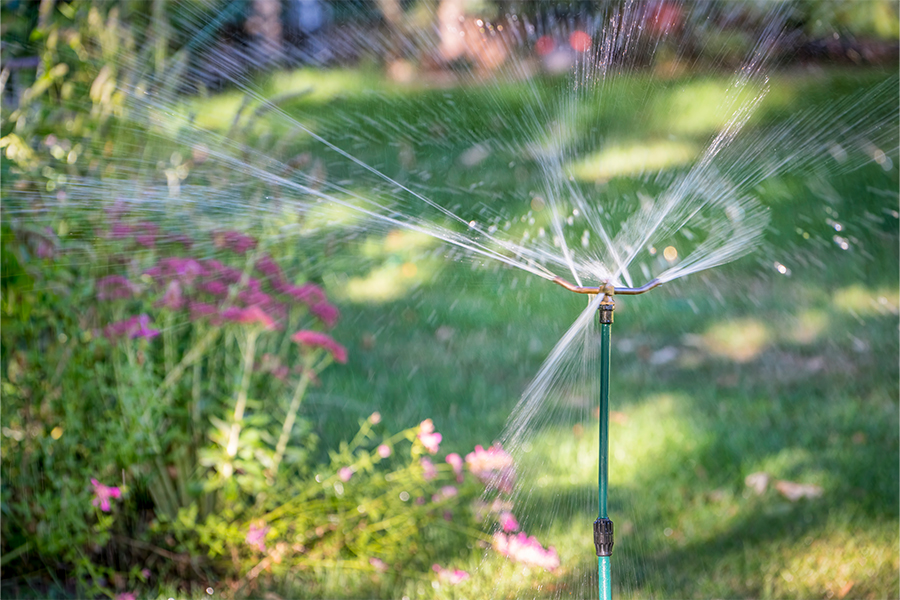Water Management Tips for Effective Spring Lawn Care
Effective spring lawn care is more than mowing and weeding. You need a roots-up approach where every element works in synergy. Water management is a critical component in maintaining the health and beauty of your lawn, in coordination with fertilization, weed control, aeration, and overseeding.
By understanding and implementing smart water management practices, you can greatly enhance the effectiveness of your lawn care regimen. To optimize your lawn’s health and vibrancy, consider Valley Green Companies for your lawn care needs!
Science Of Water Management
Water management in lawn care is about more than just watering your grass. You’ll need to understand your lawn’s specific needs based on soil type, grass species, and local climate conditions. The USDA hardiness zones 4a and 4b, which include all of Central Minnesota, experience a range of weather conditions that can impact watering needs. Proper water management ensures that your lawn receives the right amount of water at the right times to optimize growth and maintain health.
In zones 4a and 4b, the fluctuating temperatures and diverse soil types can create unique challenges for water management. For example, clay-heavy soils may require less frequent but deeper watering to allow moisture to penetrate the root zone effectively. Tailoring your watering practices to these factors can prevent common problems such as overwatering or underwatering, which can lead to lawn diseases or poor root development.
Integrating Water Management with Lawn Care Services
Complementing Fertilization & Aeration
Proper water management enhances fertilization’s effectiveness by helping nutrients penetrate deeper into the soil, reaching the grasses’ roots where they are most needed. Similarly, aeration – which perforates the soil to allow air, water, and nutrients to penetrate the root zone – is much more effective when combined with smart watering practices. This ensures water seeps deeply into the aerated channels, promoting healthier root growth.
Boosting Weed Control & Overseeding Efforts
Effective water management also plays a crucial role in weed control and overseeding. Adequate moisture levels can help prevent weeds by promoting thicker, healthier grass that crowds out potential weed growth. For overseeding, consistent moisture is critical to ensure germination and establishment of the new grass.
Benefits of Effective Water Management
Enhanced Lawn Health & Sustainability
Proper irrigation increases your lawn’s resilience, reducing the need for chemical interventions and enhancing its natural beauty. Properly watered lawns are also thought to absorb more carbon dioxide, improving air quality and environmental health.
Cost Savings & Water Conservation
Smart water management practices not only benefit your lawn but also your wallet and the environment. By optimizing your watering schedule and methods, you can reduce water usage and save on utility bills. Effective water management practices can significantly reduce water usage, helping conserve this vital resource.
Implementing Smart Water Management Practices
Tips for USDA Hardiness Zones 4a and 4b
Timing & Frequency: Water your lawn early in the morning to reduce evaporation. The frequency should adjust based on rainfall and temperature changes.
Technology: Invest in a smart irrigation controller that adjusts watering based on weather conditions and soil moisture levels.
Maintenance: Check your irrigation system regularly for leaks and ensure it is optimized for even coverage.
Partner with Valley Green
Effective water management is a critical component of lawn care that enhances the impact of fertilization, aeration, weed control, and seeding. By implementing smart watering practices, you can maintain a healthier, more resilient lawn while conserving water and reducing environmental impact.
To learn more about how we can help you with your lawn management needs in USDA hardiness zones 4a and 4b, give Valley Green Companies a shout. Fill out the contact form or call at (320) 259-5959.




 Image(s) licensed by Ingram Image & Stock Photo Secrets
Image(s) licensed by Ingram Image & Stock Photo Secrets